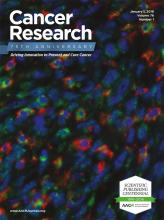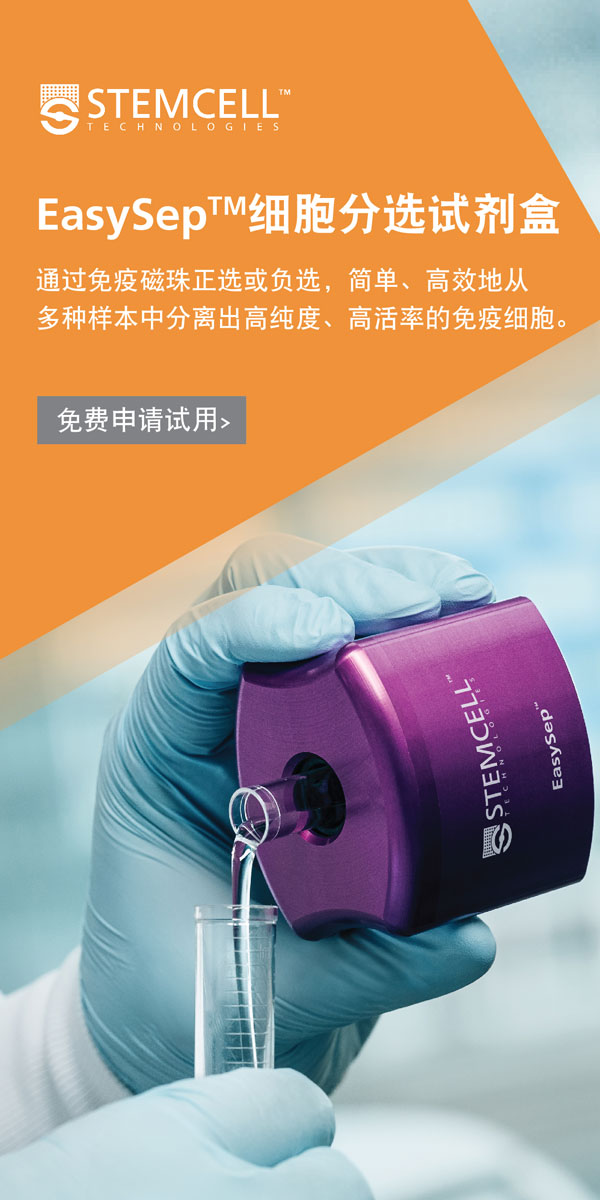- EN - English
- CN - 中文
Adoptive Transfer of Monocytes Sorted from Bone Marrow
骨髓源性单核细胞的过继转移
发布: 2019年01月05日第9卷第1期 DOI: 10.21769/BioProtoc.3134 浏览次数: 9078
评审: Alka MehraAmriti Rajender LullaJia Li
Abstract
Inflammatory Ly6Chi monocytes can give rise to distinct mononuclear myeloid cells in the tumor microenvironment, such as monocytic myeloid-derived suppressor cells (Mo-MDSC), immature macrophages, M2-like tumor-associated macrophages (TAMs), M1-like TAMs or monocyte-derived dendritic cells (Mo-DCs). This protocol describes a method to assess the fate and recruitment of inflammatory Ly6Chi monocytes in the tumor microenvironment.
Keywords: Adoptive transfer (过继转移)Background
Tumors are heterogeneous microenvironments where complex interactions take place between neoplastic cells and infiltrating inflammatory cells, such as tumor-associated macrophages (TAMs) and tumor-associated dendritic cells (TADCs). The relevance of tumor-infiltrating mononuclear myeloid cells is underscored by clinical studies showing a correlation between their abundance and poor prognosis (Bolli et al., 2007). The origin of TAMs and TADCs has been a matter of debate, since several levels of complexity result in considerable TAM and TADC heterogeneity (Movahedi et al., 2010; Laoui et al., 2014, Laoui et al., 2016; Van Overmeire et al., 2016; Kiss et al., 2018). Here, we describe a valuable method to adoptively transfer bone-marrow derived monocytes permitting the assessment of their recruitment and fate in tumors.
Materials and Reagents
- Polyester filters cut in 10 x 10 cm squares, thread diameter 70 μm (Specturmlabs, catalog number: 146490)
- 10 ml syringes (Omnifix, catalog number: 473203)
- 1 ml syringes (Greiner, catalog number: 470203)
- 27 G needles (BD Bioscience, catalog number: 300635)
- 25 G needles (BD Biosciences, catalog number: 300400)
- 19 G needles (BD Biosciences, catalog number: 301500)
- Falcon standard tissue culture dish (Fisher Scientific, catalog number: 353003)
- BD Falcon 50 ml polypropylene tubes (BD Biosciences, catalog number: 2070)
- BD Falcon 15 ml polypropylene tubes (BD Biosciences, catalog number: 2096)
- BD Falcon 5 ml polypropylene round-bottom tube (BD Biosciences, catalog number: 352063)
- 70 µm sterile nylon gauze
- LS columns (Miltenyi, catalog number: 130-042-401)
- Naive mice: Age preferably between 6 and 12 weeks, strain can vary depending on the experiment/project (in this example we used C57BL/6 mice)
- Ethanol absolute analaR Normapur ACS (VWR Chemicals, catalog number: 84857360)
- RPMI-1640 medium (RPMI) (Life Technologies, catalog number: 52400-041)
- Fetal calf serum (FCS) (Life Technologies, Gibco, catalog number: DE14-801F)
- L-glutamine (Life Technologies, catalog number: 25030-024)
- Penicillin-streptomycin (Life Technologies, catalog number: 15140-130)
- Ammonium chloride (NH4Cl) (Merck KGaA, catalog number: 1011450500)
- Potassium bicarbonate (KHCO3) (Merck KGaA, catalog number: 104852)
- EDTA (Duchefa Biochemie, catalog number: E0511.1000)
- Hank’s buffered salt solution (HBSS) (Life Technologies, Gibco, catalog number: 14175129)
- Anti-CD11b microbeads (Miltenyi, catalog number: 130-049-601)
- Purified CD16/CD32 (FcBlock) (clone 2.4G2) (BD Biosciences, catalog number: 553142)
- PE-Cy7-conjugated anti-CD11b antibody (clone M1/70) (BD Biosciences, catalog number: 552850)
- AF647-conjugated anti-Ly6C antibody (clone ER-MP20) (Serotec, catalog number: MCA2389A647)
- PerCP-Cy5.5-conjugated anti-I-A/I-E (MHC-II) antibody (clone M5/114.15.2) (BioLegend, catalog number: 107626)
- FITC-conjugated anti-Ly6G antibody (clone 1A8) (BD Biosciences, catalog number: 551460)
- APC-Cy7-conjugated anti CD45 (clone 30-F11) (BioLegend, catalog number: 103116)
- CellTrace Violet (Thermo Fisher Scientific, Molecular probesTM, catalog number: C34557)
- Trypan blue (Life Technologies, Gibco, catalog number: 15250061)
- DMSO
- 70% ethanol (see Recipes)
- Complete medium (see Recipes)
- Erythrocyte lysis buffer (see Recipes)
- MACS buffer (see Recipes)
- Sorting buffer (see Recipes)
- Violet tracer (see Recipes)
Equipment
- Sterile culture hood, PSM Optimale 18 (ADS)
- Surgical scissors and forceps
- 37 °C, 5% CO2 cell culture incubator (Binder, VWR)
- Pipettes (Gilson)
- Centrifuges 5810 R (Eppendorf, model: 5810 R)
- Shaker KS 260 Basic (IKA, model: KS 260 basic)
- Microscope Eclipse TS100 (Nikon, model: Eclipse TS100)
- MidiMACSTM Separator and MultiStand (Miltenyi, catalog number: 130-042-301)
- Multicolor FACS Sorter-FACS Aria II (BD Biosciences Aria flow cytometer)
Procedure
文章信息
版权信息
© 2019 The Authors; exclusive licensee Bio-protocol LLC.
如何引用
Laoui, D., Overmeire, E. V., Abels, C., Keirsse, J. and Ginderachter, J. A. V. (2019). Adoptive Transfer of Monocytes Sorted from Bone Marrow. Bio-protocol 9(1): e3134. DOI: 10.21769/BioProtoc.3134.
分类
免疫学 > 动物模型 > 小鼠
癌症生物学 > 肿瘤免疫学 > 肿瘤微环境 > 免疫抑制
细胞生物学 > 基于细胞的分析方法 > 胞外微环境
您对这篇实验方法有问题吗?
在此处发布您的问题,我们将邀请本文作者来回答。同时,我们会将您的问题发布到Bio-protocol Exchange,以便寻求社区成员的帮助。
Share
Bluesky
X
Copy link













